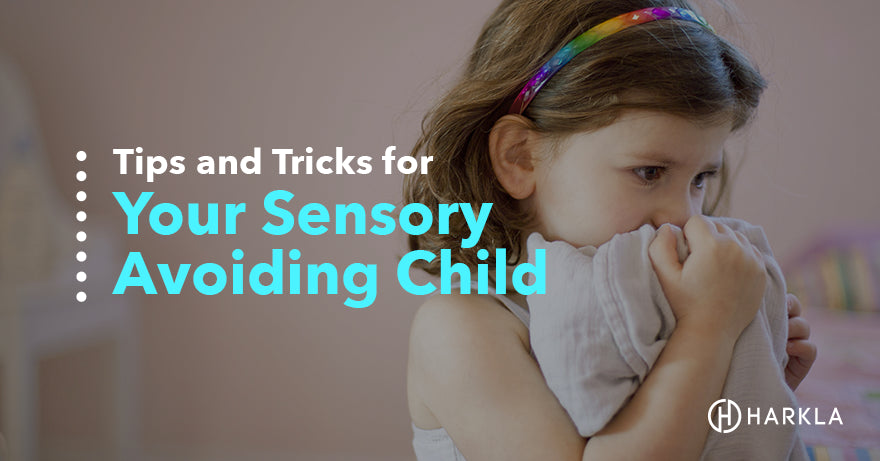Your Cart is Empty

Last year, the CDC published a 15% increase in the rate of autism, saying it now affects 1 in 59 children in our country, up from 1 in 68 two years prior. In another study, it was found that 1 in 40 children are diagnosed with ASD.
There is a huge call for funding, research, and services to support these children and their families. While we know that there is no “cure” for autism, there are countless interventions therapies and other traditional treatments, as well as alternative treatments to help with developmental difficulties, functional skills, and symptom relief.
Autism medication can also be an option. While it cannot treat autism itself, it can offer relief from symptoms.
With treatment for autism, most people agree that non-medical interventions are best, at least to start. Families and children with autism often have a long road ahead, with early intervention, school-based therapies, and outpatient clinic work.
Typical treatments include behavioral therapy, speech, and occupational therapies, as well as play-based therapies, social communication work, and even changes in diet and nutrition.
Still, sometimes symptoms are so pervasive and persistent that they cannot be alleviated with traditional treatments.
When does a family consider pharmaceutical intervention? Is treating autism with medication effective? Where do we start?
As with most medications in the pediatric population, there is limited research. Even more restrictive are studies that specifically involve children with autism. The FDA has approved a few medications to target certain symptoms of autism, and the good news is that they are currently fast-tracking the studies of other drugs.
There is a whole list of symptoms that can be treated with medication. Seizures, sleep, attention, mood, irritability, depression, anxiety, and aggression are just a few.
With autism, seizures and sleep difficulties are often comorbid and can be treated specifically. Some published rates that document epilepsy in autism are as high as 33%. Epilepsy and seizure disorders are treated with a class of drugs called anticonvulsants, some that are even derived from cannabinoid oil, or CBD.
It is also very common for children with autism to struggle with falling asleep and staying asleep. Although there are pharmaceuticals that can address sleep issues, there are mainstream methods available that can help, like essential oils, melatonin, or basic sensory modifications.
To date, no drug has been developed and approved to target the core symptoms of autism – social interaction, restricted interests, or repetitive behaviors.

While these hallmark traits of autism can be influenced by more traditional treatments, some symptoms can be so handicapping that they prevent an individual’s occupational performance in their daily tasks. When preoccupations are so persistent or routines/rituals are incredibly inflexible, these behaviors can be considered to be obsessive-compulsive.
Often OCD like traits can serve functionally to reduce anxiety, but they can also become incredibly limiting.
“Stimming” (self-stimulatory) behaviors or stereotypy can be characterized by rigid, repetitive movements and/or vocal sounds.
Hand flapping, finger flicking, pacing, or spinning objects can often start early in childhood but develop and change over time. These motor mannerisms can serve functionally to regulate arousal. Socially they can be confusing to others who do not understand.
There are three classes of medications that can help treat some of the side effects of autism. This list, while not exhaustive, are some of the more commonly prescribed drugs.
It is important to note that while they have been approved by the FDA to be used in children, they have not all been studied and approved for children with autism. Again, while they do not treat autism specifically, they can be beneficial in symptom management of the following:
Many symptoms of ADD/ADHD and autism overlap and some children have dual diagnoses. These medications most commonly prescribed for children with attention deficit disorder can help improve focus and behavior, decrease impulsivity, and hyperactivity. They are safe for pediatric use and have been reported to be most beneficial in children with high functioning autism.
These medications are types of selective serotonin reuptake inhibitors (SSRIs) that are prescribed for anxiety, depression, and/or obsessive-compulsive disorder (OCD).

The FDA has issued a “black box” warning on these types of medications to closely monitor for signs of suicide. This is the most strict and most dangerous label that the FDA uses for serious and life-threatening issues and should not be taken lightly.
With this class of medications, there is a potential for increased risk of suicidal thinking or attempts in children and adolescents taking antidepressants. The individual should be monitored closely at the start of taking a new drug in this category as well as when dosages change.
This category of medications is the only one with specific FDA drug approval for children with autism. They are used to help alleviate irritability associated with the disorder, as well as for anxiety, impulsivity, and mood.
Studies of these medications document a decrease in tantrums, rapid mood changes, aggression, and self-injurious behavior. It is estimated that these drugs can address some behaviors 30-50% of the time, but have yet to relieve all behaviors or any specific symptom for any longer.
Mood stabilizers for autism represent another category of autism spectrum medications that doctors may consider. These medications, which include valproic acid (Depakote), lamotrigine (Lamictal), and lithium, are primarily used to treat bipolar disorder but can also help with aggression, self-injury, and mood fluctuations in children with autism. While research on mood stabilizers for autism is still limited, some families report improvements in emotional regulation and behavioral symptoms.
In 2018, the FDA was reported to have fast-tracked a drug called Balovaptan, made by drug manufacturer Roche. As of June 2020, they were finalizing the recruitment of participants in preparation for the third phase of clinical trials of signaling a hormone that is linked to behavior.
They are currently studying only adults with autism and hope to improve speech and socialization, and will expand to children and teens later on. Although we look forward to the results, the public will not be able to access it for some time.
A different drugmaker, Yamo Pharmaceuticals, also has a drug that will be fast-tracked by the FDA. The medication known as L1-79 will target the central nervous system to improve speech and social skills. Yamo released details of a clinical trial in May 2019.
Research into new autism medications is ongoing, but progress has been cautious and uneven. Balovaptan (Roche), a vasopressin V1a receptor modulator that was fast-tracked by the FDA in 2018, was later discontinued after late-stage trials failed to show meaningful improvement in social communication, while other investigational drugs, such as Yamo Pharmaceuticals’ L1-79, remain in early clinical trials and are still considered experimental.
Medications can be helpful to treat some of the symptoms of autism. Although there are drugs that have been approved for safe use with children, there are only two drugs with FDA approval for children with autism.
Medication is typically only considered after mainstream traditional therapies have been tried and symptoms are persistent and interfere with occupational performance (such as activities of daily living, learning at school, social participation). As with any medication, they will not be effective for everyone, and they do come with side effects.
Each person reacts differently to each drug, and over time there is a potential to develop a tolerance or sensitivity to certain medications. There are ‘black box’ labels on some antianxiety and antidepressant medications, the most strict and dangerous warning that the FDA gives.
It is important that responses to medications and side effects are well-monitored and documented, with strong communication to health care providers. For more information about deciding if medications are the right choice, consult this Medication Decision Toolkit from Autism Speaks. It has helpful tips about specific medications, side-effects, diet, activity, sleep, with logs and charts to help in keeping track.
To date, none of the available medications target the core symptoms of autism. The development of new drugs and upcoming clinical trials are exciting and offer hope for improving the lives of children with autism. Still, it will be a few more years before we know if the medications are safe and effective and if they will receive FDA approval to be available for use.
If you've used medications for your child and have experiences you'd like to share, we would love to hear from you!
https://www.additudemag.com/autism-medication-treatment-help-parenting/
https://www.disabilityscoop.com/2018/12/11/drugs-autisms-core-symptoms/25532/
Comments will be approved before showing up.


